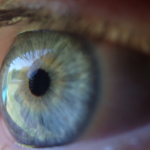By Prof (Dr) Mahipal S Sachdev
With about 77 million people in India aged 60 years or above, they represent a large group vulnerable to vision-related disorders, and the number is expected to reach 180 million by 2026.
The retina is the part of the eye that is responsible for detecting light and sending visual signals to the brain. As we age, the cells in the retina may become damaged, resulting in various retinal diseases. These include Age-related Macular Degeneration (AMD), Diabetic Macular Edema (DME) and Retinal Detachment (RD).
Therefore, prioritizing regular eye check-ups is vital. Routine eye examinations allow for the early detection and prevention of these issues, significantly reducing the risk of complications. By monitoring and managing retinal conditions, eye professionals can provide timely interventions and personalized treatment plans.
In addition, maintaining a healthy lifestyle plays a crucial role in preventing and managing these conditions among senior citizens. Key practices include consuming a nutritious diet that includes fruits, vegetables, and omega-3 fatty acids to reduce the risk of AMD.
Managing diabetic retinopathy can be supported by maintaining a diet low in saturated and trans fats. Regular exercise reduces the likelihood of conditions like diabetes and improves blood flow to organs, which helps prevent AMD.
Quitting smoking is also essential, as smoking significantly increases the risk of AMD. By adopting these lifestyle parameters and staying proactive with regular eye check-ups, you can take charge of your eye health and effectively manage retinal diseases.
Often, the diagnosis of AMD or DME can be overwhelming and emotional for individuals specially when already dealing with other age-related ailments. As these conditions can have a significant impact on daily activities and quality of life, affected individuals may struggle with mundane tasks like reading, driving, or even recognizing faces.
These challenges can lead to a sense of dependence on others and cultivate feelings of despair and desolation. It is important to seek emotional support from family, friends, or a mental health professional to help cope with the feelings of anxiety, frustration and distress.
With the advent of newer technologies for diagnosing and managing age related eye disorders, all is not as gloomy as it sounds. There are many assistive technologies and vision aids available currently to help seniors manage these challenges and lead a comfortable life which can be provided by the nearest ophthalmology team. Multiple researches are ongoing to even revert the progression of diseases previously thought to have no cure.
Support Resources
There are also many support resources available to help the elderly manage their eye diseases. Low vision rehabilitation is a type of therapy that can help one learn new skills and strategies to manage their vision loss, especially in AMD & DME cases. Support groups can also be a valuable resource, providing a space to connect with others who are going through similar experiences.
In conclusion, prioritizing eye health through regular check-ups ensures that senior citizens can enjoy optimal vision, maintain their independence, and enhance their overall quality of life. By prioritizing routine screenings, senior citizens can take proactive steps towards preserving their vision and preventing the progression of retinal diseases.
By working together, senior citizens, their families, and healthcare professionals can help manage the impact of AMD and DME on daily life. We need to remember that good eye health means a good life!

